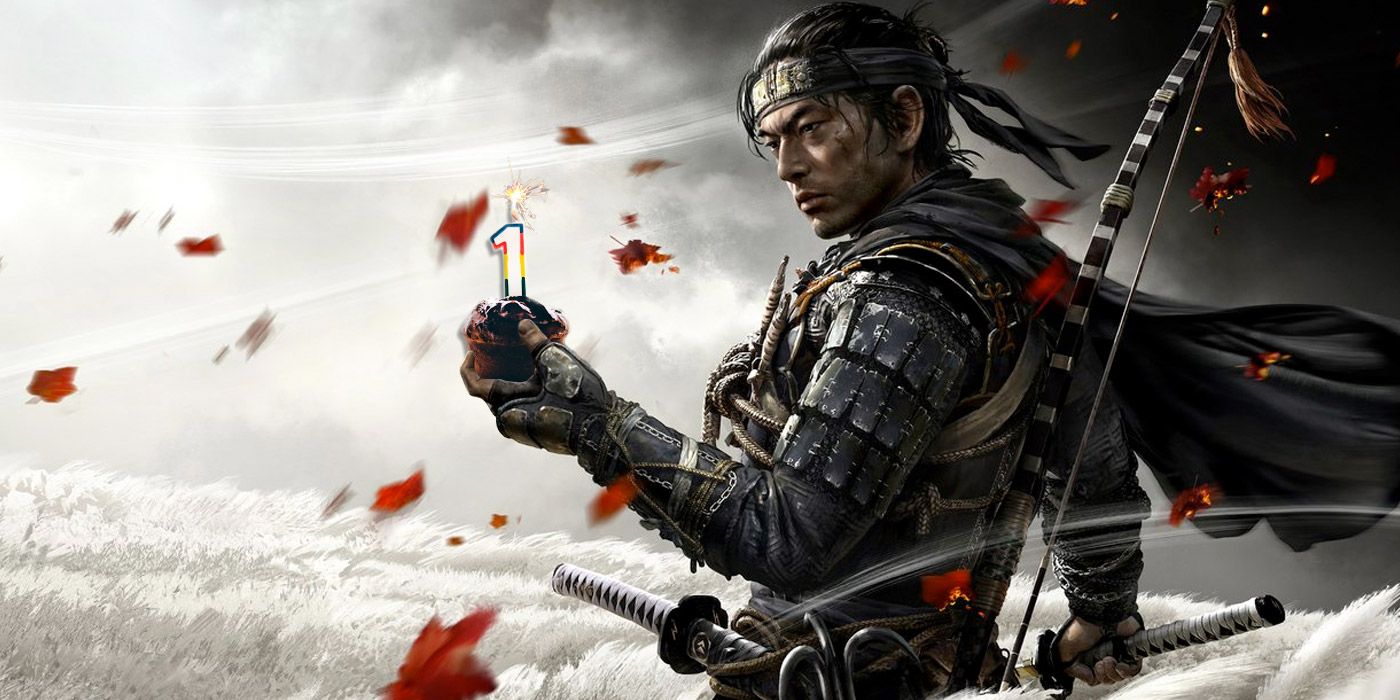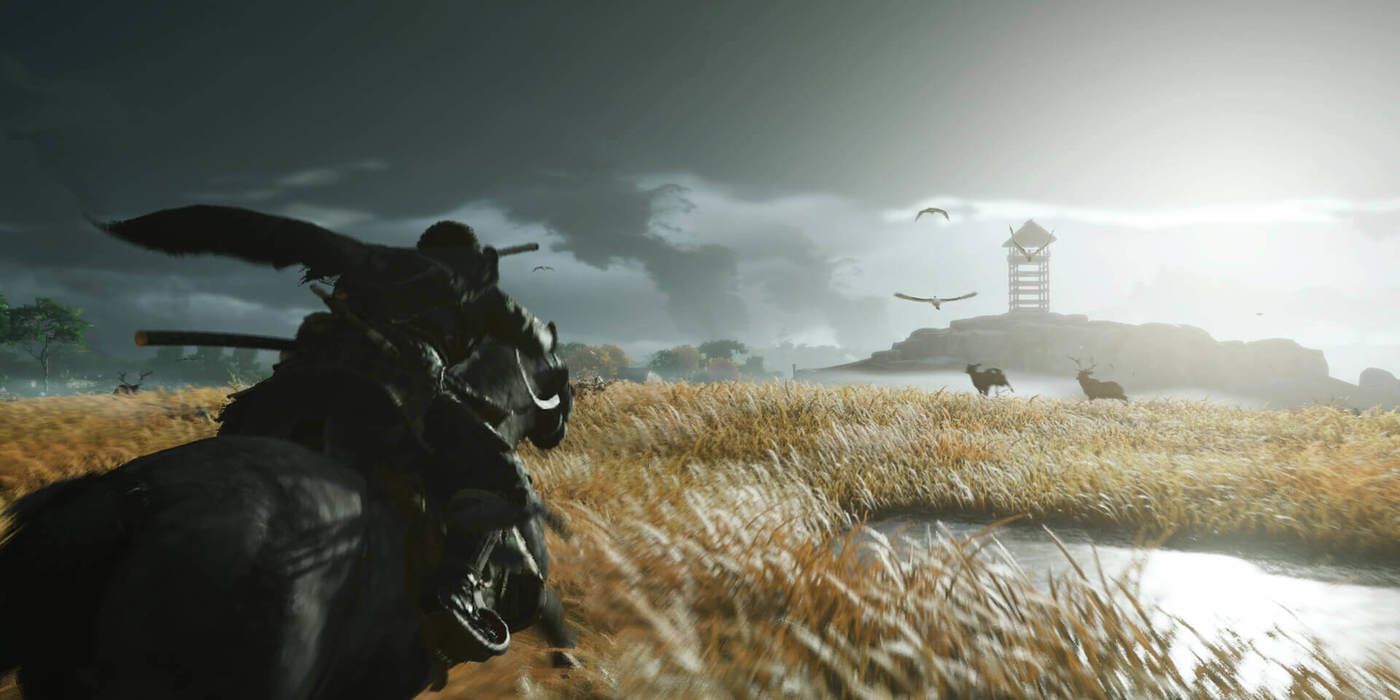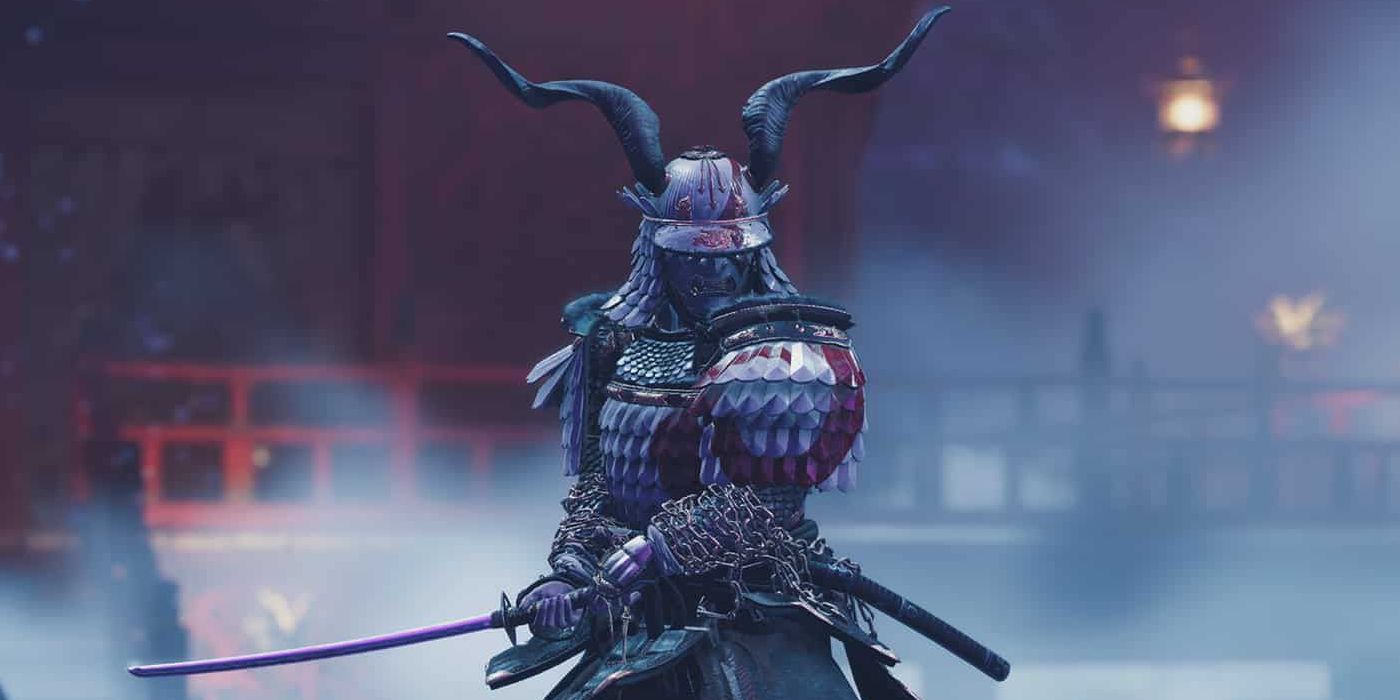Ghost of Tsushima just reached its first anniversary. The surprise hit from Sucker Punch Productions has become incredibly successful both critically and commercially. A year later, the game still has a dedicated playerbase that still uncovers new secrets in the game's massive world. Now that Ghost of Tsushima has been out for a year, with its upcoming director's cut re-release on the way, many fans are taking the chance to re-examine the game and what's likely to be a legacy it's created.
Excitement about Ghost of Tsushima had built up quickly before its release on July 17, 2020. The year had seen industry-wide impacts from Covid-19 and subsequent hardware and labor shortages. Those effects led to a much more sparse year in terms of "nerd" culture offerings, the movie industry hit a brick wall, and many games that were expected to release that year ended up delayed to fans' chagrin. Ghost of Tsushima still managed to join a host of games that helped get players through the year that was 2020. Expectations about what's to come in Ghost of Tsushima: Director's Cut are high for a reason, the original game is considered a masterpiece by many.
Ghost of Tsushima Didn't Reinvent the Wheel, But Refined the Hell Out of It
Ghost of Tsushima was kind of a surprise for many fans. Sucker Punch certainly had a pedigree of success with fan-favorite games like Sly Cooper and Infamous. What was surprising was to see the Western developer tackling a part of Japanese history that is incredibly important on a cultural level. Samurai culture, with all of its romanticized depictions, is still very influential throughout culture in Japan. A well-known example being Miyamoto Musashi's The Book of Five Rings, still being read by businessmen to this day. Sucker Punch tackling one of the Mongol incursions into feudal Japan was exciting new territory, and Ghost of Tsushima recreated the era beautifully.
The depiction of the island of Tsushima was faithful, the world of the game felt lived-in, and the story told a wonderful (if sometimes formulaic) tale of a warrior torn between compromising his ideal vision of the world for saving his world outright. The acting, animation, and writing were dripping with deference to Kurosawa, and fans quickly became attached to even the less-than-honorable characters. There's a reason players will return for Ghost of Tsushima: Director's Cut even if they've already finished the original. the story and atmosphere was well-crafted and attached to an incredibly satisfying gameplay system that keeps players engaged, even a year later.
A key part of Tsushima's appeal has been its gameplay. It took elements from other successful titles in fair measure while applying its own twist. Stealth gameplay in Ghost of Tsushima feels a lot like Assassin's Creed at its best, but tooled with weapons and abilities that feel uniquely keyed in to the samurai/ninja aesthetic. Open combat brought in engaging systems that sometimes felt as brutal as Sekiro, and other times as power fantasy-fulfilling as Shadow of Mordor. Sucker Punch has a long history of creating interesting combat, with Infamous as an obvious example. However, Ghost of Tsushima excelled in part for feeling viscerally real while still offering some Devil May Cry levels of style.
The impact of Ghost of Tsushima on the industry as a whole is hard to overstate. It quickly joined the ranks of the exclusives that have helped solidify the PlayStation 4 as one of the best consoles to have owned throughout gaming's history. It stands toe-to-toe with games like God of War and Horizon Zero Dawn that came before it, while also contending with the other major releases of 2020 like Final Fantasy 7 Remake. The game's had a huge cultural impact as well. Ghost of Tsushima still inspires fan art and cosplays, and famously the developers have been branded as cultural ambassadors for the real-life island of Tsushima. With such an enormous effect on the landscape, many fans are wondering about where the franchise (or at the least its format) could go in the future.
Where Ghost of Tsushima Could Go in the Future
Obviously the inclusion of Ikishima island to Ghost of Tsushima: Director's Cut have been exciting for fans. Replaying the already-gorgeous game in higher graphical fidelity on the PS5 will be a big draw for some, but new content is a huge deal for the game. While there's certainly division among fans about the higher price of the upgrade, the prospect of adding new content to explore is incredibly enticing for many fans. Continuing the story of Jin Sakai is also interesting, given the fairly cliffhanger-style ending of the core game. While Khan is defeated and the bulk of the Mongol incursion was pushed back, there's still work for the Ghost to do.
Exploring the rest of that story will be something likely to draw both existing and new fans to the re-release of Ghost of Tsushima. A game as popular as Ghost of Tsushima adding an expansion is inevitably going to attract players who may have missed it the first time around, and those that finished the game quickly as many players did during the bulk of quarantine. Another aspect of the game's appeal could be to see not just Jin Sakai's story continue, but seeing Ghost of Tsushima's relative realism and gameplay concepts applied to other stories beyond just that of the Mongol invasions into Japan.
Sucker Punch isn't known for several sequels or semi-annual releases, which would be an immediate red flag for many fans when discussing the idea of Ghost of Tsushima's format being brought to other stories. Assassin's Creed overall is a well-loved franchise, but there are definitely some entries that fell flat for longtime fans when the series had become a quasi-annual release. With such a rewarding gameplay loop, and the caliber of narrative Sucker Punch has come to be known for, seeing Tsushima-like games based in other eras or some kind of expansion for the Ghost of Tsushima: Legends multiplayer mode in the future is enticing to be sure.
With so many viable options to explore even just within feudal Japan, the possibilities for the series to continue at least spiritually seem endless. Events like the Meiji Restoration, the chaos of the Edo Period, and a fictionalized version of the aforementioned Musashi, are all fascinating options to see explored in a game crafted with the same care that Sucker Punch brought to Ghost of Tsushima. A year later it truly seems like the possibilities for Ghost of Tsushima in the future are wide open, especially after fans get to experience Tsushima again when the rerelease comes to PS5.
Ghost of Tsushima: Director's Cut releases on August 20, 2021 for PS4 and PS5.



